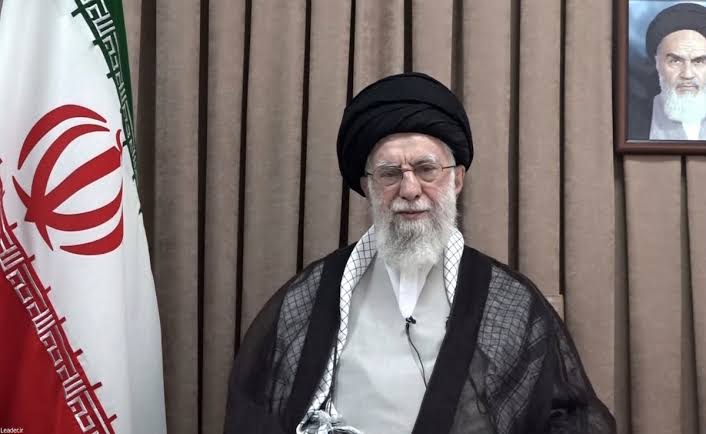NEWS
Iran warns Trump its retaliation is NOT over after firing missiles at U.S. base

June 23, 2025 – Tensions in the Middle East are spiraling after Iran launched missile strikes targeting U.S. military bases, specifically the Al Udeid Air Base in Qatar. The attack marks Iran’s first direct response to recent U.S. bombings on its nuclear facilities. In a bold statement, Iran warned that its retaliation is far from over, declaring, “You started it — but you will not end it.”
U.S. Bases Targeted in Coordinated Strike
- Iran’s Revolutionary Guard fired a volley of short- and medium-range ballistic missiles at multiple U.S. military positions across the region.
- The Al Udeid Air Base in Qatar, which houses U.S. Central Command operations, was the primary target.
- Qatari air defenses successfully intercepted the incoming missiles, and no casualties were reported.
- Despite minimal physical damage, the political message was clear: Iran is willing and able to strike U.S. forces in the Gulf.
️ Tehran’s Fierce Warning to Trump
Iranian state media aired dramatic footage of missile launches and presented maps highlighting U.S. military installations in the region. A statement released shortly after the strike declared:
“This is only the beginning. Our retaliation is not over. We reserve the right to respond as we see fit.”
The message was directly aimed at former President Donald Trump, whose order to bomb Iran’s nuclear sites last week triggered this wave of retaliation.
U.S. Elevates Terror Alert
- The Department of Homeland Security raised the national terror threat level in anticipation of possible retaliatory attacks — either abroad or domestically.
- Intelligence agencies are now on high alert for signs of cyberattacks, proxy violence, or terror plots tied to Iranian-linked groups.
- U.S. embassies in the Gulf region have issued emergency shelter-in-place advisories for American citizens.
Regional Fallout & Global Response
- Qatar condemned the attack but affirmed its cooperation with U.S. defense systems.
- Neighboring Gulf states, including UAE and Bahrain, have temporarily closed their airspace and bolstered security at strategic locations.
- The United Nations, along with major global powers, has called for immediate de-escalation to prevent a broader regional war.
What’s at Stake
| Concern | Description |
|---|---|
| Expanded conflict | Risk of a wider war across the Middle East with Iran and U.S.-allied forces. |
| Oil market shock | Iran has threatened to disrupt the Strait of Hormuz — a key global oil route. |
| Domestic vulnerabilities | U.S. law enforcement agencies fear homegrown extremist activity or cyberattacks. |
Final Thoughts
Iran’s declaration that “retaliation is not over” signals that the conflict is far from resolved. With strategic bases under fire, global powers scrambling for calm, and the U.S. military on edge, the next 48–72 hours may determine whether this remains a tit-for-tat skirmish — or ignites a full-scale regional war.
The world watches anxiously as the line between deterrence and disaster becomes increasingly blurred.












